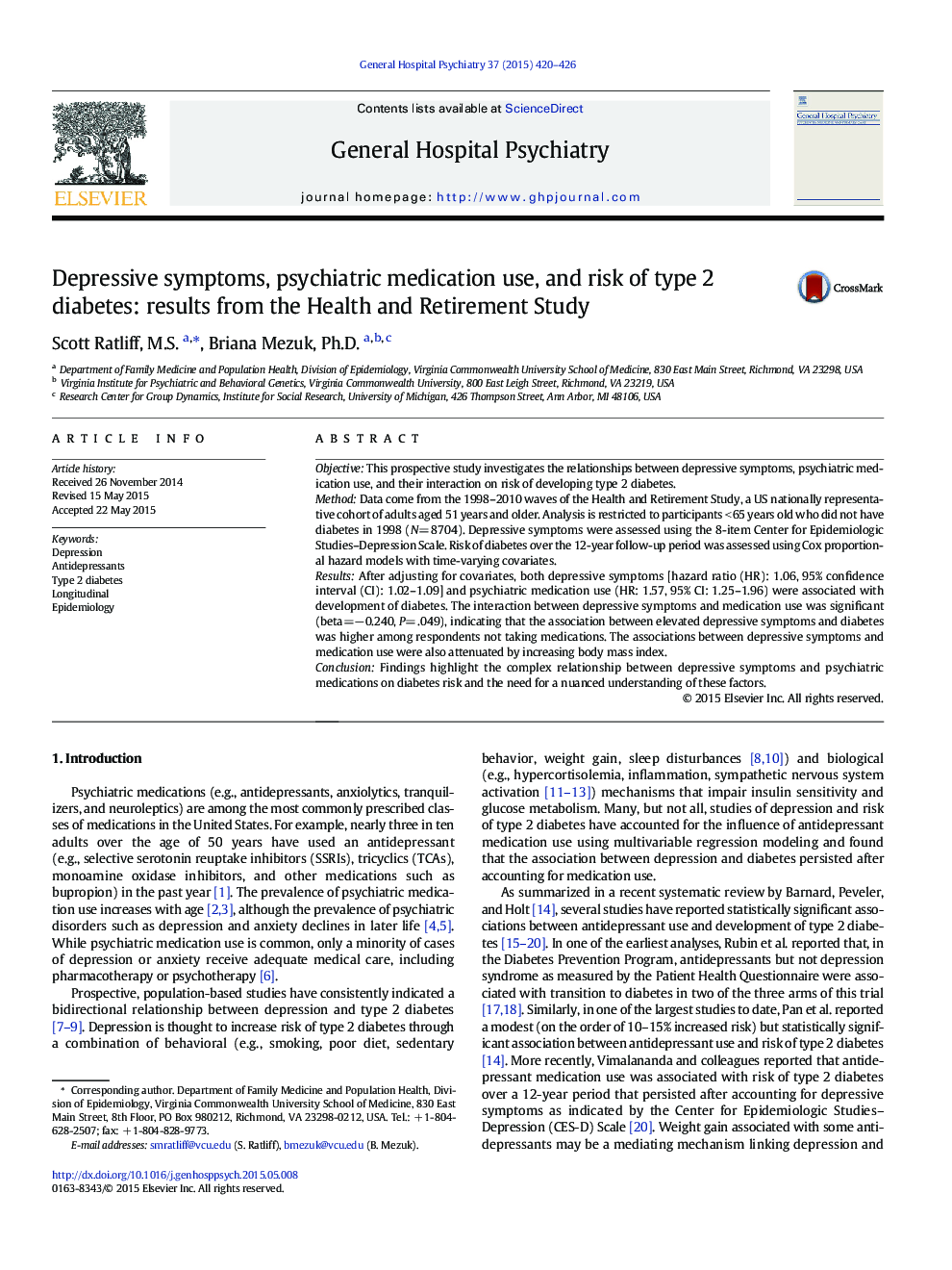| Article ID | Journal | Published Year | Pages | File Type |
|---|---|---|---|---|
| 6081655 | General Hospital Psychiatry | 2015 | 7 Pages |
ObjectiveThis prospective study investigates the relationships between depressive symptoms, psychiatric medication use, and their interaction on risk of developing type 2 diabetes.MethodData come from the 1998-2010 waves of the Health and Retirement Study, a US nationally representative cohort of adults aged 51 years and older. Analysis is restricted to participants <Â 65 years old who did not have diabetes in 1998 (N=Â 8704). Depressive symptoms were assessed using the 8-item Center for Epidemiologic Studies-Depression Scale. Risk of diabetes over the 12-year follow-up period was assessed using Cox proportional hazard models with time-varying covariates.ResultsAfter adjusting for covariates, both depressive symptoms [hazard ratio (HR): 1.06, 95% confidence interval (CI): 1.02-1.09] and psychiatric medication use (HR: 1.57, 95% CI: 1.25-1.96) were associated with development of diabetes. The interaction between depressive symptoms and medication use was significant (beta=â0.240, P=Â .049), indicating that the association between elevated depressive symptoms and diabetes was higher among respondents not taking medications. The associations between depressive symptoms and medication use were also attenuated by increasing body mass index.ConclusionFindings highlight the complex relationship between depressive symptoms and psychiatric medications on diabetes risk and the need for a nuanced understanding of these factors.
